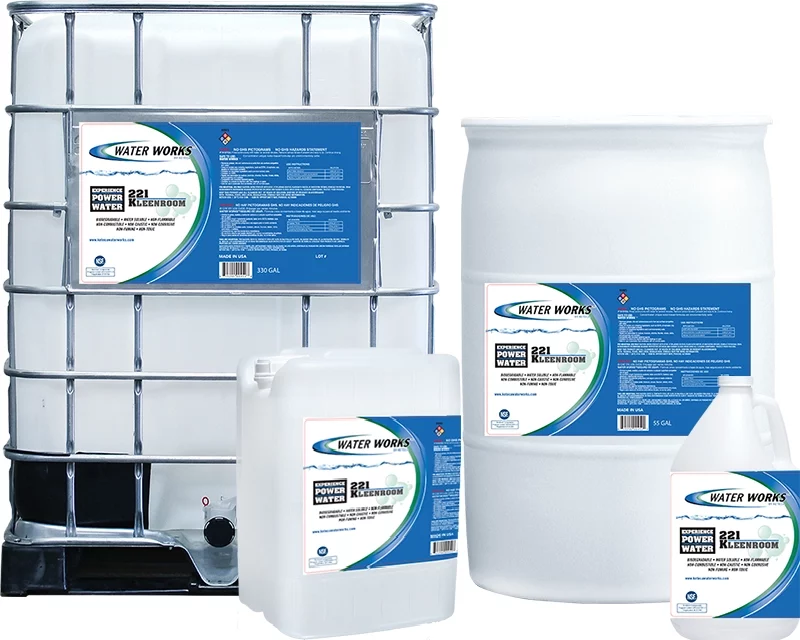221 KLEENROOM
Floor Cleaner

221 KleenRoom Floor Cleaner
- 221 KleenRoom Water-based (Aqueous) Degreaser Floor Cleaner
- Is the best solution for the most stringent environmental regulations.
- Removes grease, oils, and tough soils from any surface compatible with water.
- Does not contain any phosphates, soy, caustics, or chlorinated
solvents. - Contains no hazardous ingredients and is environmentally
responsible. - Compatible with microbial bacterial agents.
- Contains no silicone to interfere with new coatings or paint.
- Safe to use in both walk-behind and riding floor scrubbers.
For multiple IBC tank orders of 275 and 330 gallons
Please call 877-418-1306.
Manufacturer Part Number:WW221-330G WW221-275G WW221-55DR WW221-5G WW221-2GAL WW221-1GAL-CS WW221-1G WW221-32OZ
Manufacturer GTIN: 00855290004548 00855290004531 00855290004524 00855290004517 00855290004661 00855290004678 00855290004500 00855290004494
221 KleenRoom Floor Cleaner is a ready-to-use surfactant-based cleaner/degreaser designed to clean grease, oil, ink, and coolants off flooring surfaces without leaving a residue. 221 KleenRoom floor cleaner is formulated to work with most industrial commercial floor scrubbers and can be treated like water in most cases.
Dilutio ratio (Water:Solution)
Mop and Bucket: 17:1
Walk Behind Floor Scrubber: 30:1
Riding Floor Scrubber: 30:1
General Cleaning (Spray Bottle): 1:1

